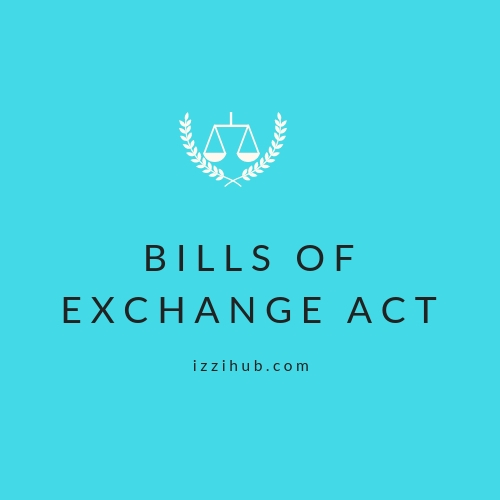Bills of Exchange Act 1881 In Accounting with Types
Every businessman (irrespective of any type of business) wants to sell the products or goods at cash, mainly because to utilities the cash in business for getting more advantages instead of blocking it in different places. The second one is to minimize the risk of bad debts. Bills of Exchange (BOE) help businessman for securing from doubtful debts.
Definition as per Bills of Exchange Act 1882
As per Uk Law, An unconditional order in writing, addressed by one person to another, signed by the person giving it, requiring the person to whom it is addressed to pay on demand or at a fixed or determinable future time a sum certain in money to the order of specific person, or to the bearer.
Example
XYZ (Buyer) want to purchase goods from ABC Co (Seller) but have not money. On mutual consent they come into the negotiable act of Bills of exchange then ABC (Seller) draw an order on the name of XYZ to pay the amount at the agreed date and send to ABC for Acceptance. ABC accepts it and returned to Drawer (ABC Co –Seller)
Can transfer or endorse to unlimited persons but before the maturity date.
Types of Bills of Exchange
- Inland Bills
- Foreign Bills
Terms Use in Bills of Exchange Process
- Drawer, who draws an order to pay the debt
- Drawee To Whom bills of exchange is Drawn, and who accept to pay the amount.
- Holder in due course who is the possessor of the bill
- An endorser who transfer his rights for the collection of the amount to another, Means who transfer bill to another party against cash or goods.
- Endorsee who collect the rights of bills from Endorser.
- Unconditioned means that transaction should be clear and not based on any event or act. For Example, Drawee pays the debt if dollar rate will increase or if the government unchanged etc. simple lines that fixed payment should be paid at the particular date.




